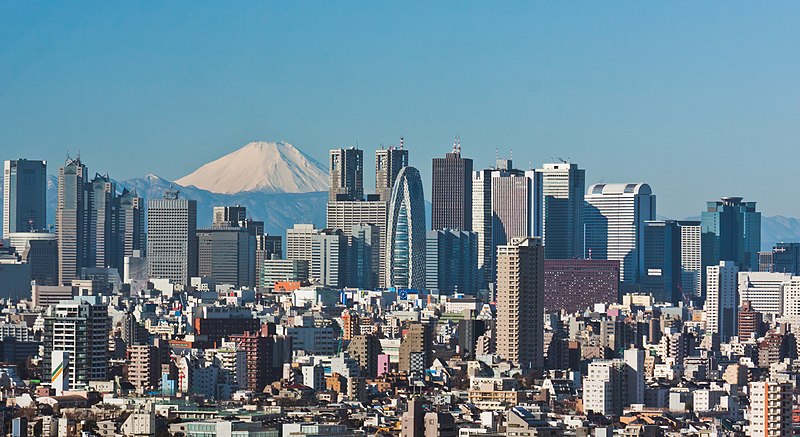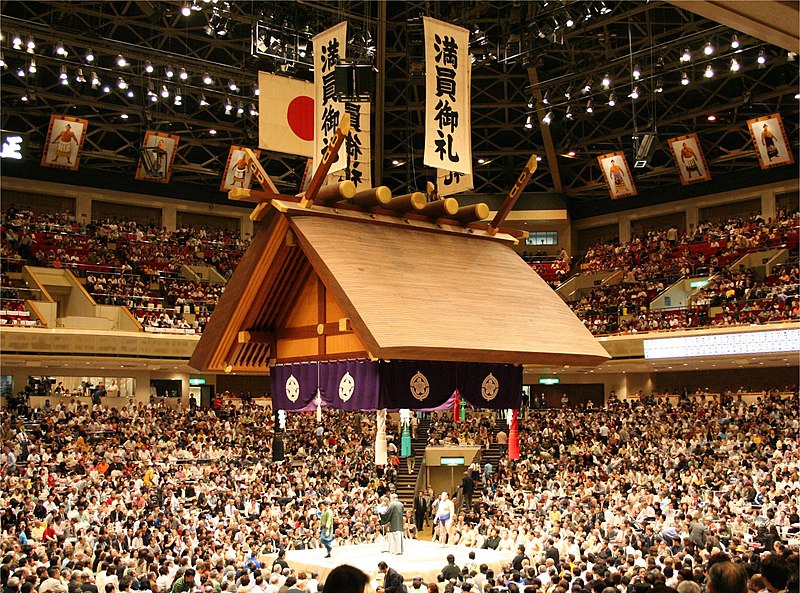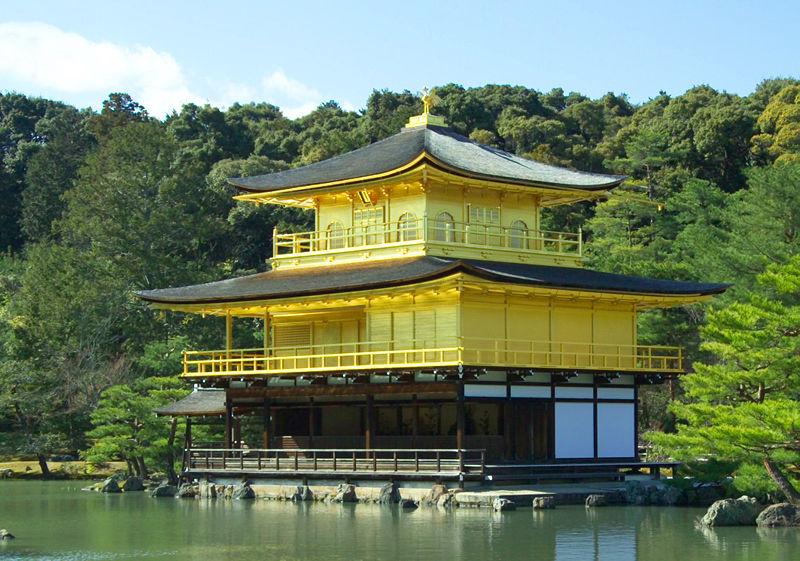Difference between revisions of "Adopting from Japan"
(→Who Can Adopt) |
m (→SOURCE) |
||
| (16 intermediate revisions by 2 users not shown) | |||
| Line 1: | Line 1: | ||
| − | {{#eimage:https://www.cia.gov/library/publications/the-world-factbook/graphics/flags/large/ja-lgflag.gif|410x579px|thumb|'''The official flag | + | {{#eimage:https://www.cia.gov/library/publications/the-world-factbook/graphics/flags/large/ja-lgflag.gif|410x579px|thumb|'''The official flag.'''<BR/>Source: cia.gov.}} |
| − | {{#eimage:https://www.cia.gov/library/publications/the-world-factbook/graphics/maps/ja-map.gif|410x579px|thumb|'''Map | + | {{#eimage:https://www.cia.gov/library/publications/the-world-factbook/graphics/maps/ja-map.gif|410x579px|thumb|'''Map.'''<BR/>Source: cia.gov.}} |
| − | {{#eimage:https://www.cia.gov/library/publications/the-world-factbook/graphics/locator/eas/ja_large_locator.gif|410x579px|thumb|'''Map | + | {{#eimage:https://www.cia.gov/library/publications/the-world-factbook/graphics/locator/eas/ja_large_locator.gif|410x579px|thumb|'''Map.'''<BR/>Source: cia.gov.}} |
| − | {{#eimage:http://upload.wikimedia.org/wikipedia/commons/thumb/1/17/Horyu-ji11s3200.jpg/800px-Horyu-ji11s3200.jpg|410x579px|thumb|''' Golden Hall and Five-storied Pagoda of Hōryū-ji are Japan's National Treasures. Hōryū-ji is a Buddhist temple in Ikaruga, Nara prefecture | + | {{#eimage:http://upload.wikimedia.org/wikipedia/commons/thumb/1/17/Horyu-ji11s3200.jpg/800px-Horyu-ji11s3200.jpg|410x579px|thumb|''' Golden Hall and Five-storied Pagoda of Hōryū-ji are [[Japan]]'s National Treasures. Hōryū-ji is a Buddhist temple in Ikaruga, Nara prefecture.'''<BR/>Source: Wikipedia.org.}} |
{{#eimage:http://upload.wikimedia.org/wikipedia/commons/thumb/d/dc/Skyscrapers_of_Shinjuku_2009_January_%28revised%29.jpg/800px-Skyscrapers_of_Shinjuku_2009_January_%28revised%29.jpg|410x579px|thumb|'''Skyscrapers of Tokyo with Mt. Fuji in the backround.'''<BR/>Source: Wikipedia.org.}} | {{#eimage:http://upload.wikimedia.org/wikipedia/commons/thumb/d/dc/Skyscrapers_of_Shinjuku_2009_January_%28revised%29.jpg/800px-Skyscrapers_of_Shinjuku_2009_January_%28revised%29.jpg|410x579px|thumb|'''Skyscrapers of Tokyo with Mt. Fuji in the backround.'''<BR/>Source: Wikipedia.org.}} | ||
| Line 17: | Line 17: | ||
{{#eimage:http://www.bigfoto.com/asia/japan/japan25.jpg|410x579px|thumb|'''Japanese school children.'''<BR/>Source: bigfoot.com.}} | {{#eimage:http://www.bigfoto.com/asia/japan/japan25.jpg|410x579px|thumb|'''Japanese school children.'''<BR/>Source: bigfoot.com.}} | ||
| − | {{#eimage:http://upload.wikimedia.org/wikipedia/commons/thumb/4/45/Geisha-kyoto-2004-11-21.jpg/497px-Geisha-kyoto-2004-11-21.jpg|410x579px|thumb|'''Kyoto Geisha's.'''<BR/>Source: Wikipedia.org.}} | + | {{#eimage:http://upload.wikimedia.org/wikipedia/commons/thumb/4/45/Geisha-kyoto-2004-11-21.jpg/497px-Geisha-kyoto-2004-11-21.jpg|410x579px|thumb|'''Kyoto [[Geisha]]'s.'''<BR/>Source: Wikipedia.org.}} |
| − | {{#eimage:http://upload.wikimedia.org/wikipedia/commons/thumb/c/c9/Kinkaku3402CBcropped.jpg/800px-Kinkaku3402CBcropped.jpg|410x579px|thumb|'''Shariden Kinkaku (Golden Pavilion) at Rokuonji (Temple of the Golden Pavilion) in Kyoto | + | {{#eimage:http://upload.wikimedia.org/wikipedia/commons/thumb/c/c9/Kinkaku3402CBcropped.jpg/800px-Kinkaku3402CBcropped.jpg|410x579px|thumb|'''Shariden Kinkaku (Golden Pavilion) at Rokuonji (Temple of the Golden Pavilion) in Kyoto.'''<BR/>Source: Wikipedia.org.}} |
| − | |||
| + | '''Notice: As of July 14, 2014, all individuals and agencies facilitating [[international]] adoptions must be in compliance with the Intercountry [[Universal Accreditation Act]].''' | ||
| + | The information contained on this website is for educational purposes only and is not intended to be a substitute for professional legal advice. Always seek the advice of a licensed and qualified professional. While the content of this website is frequently updated, information changes rapidly and therefore, some information may be out of date, and/or contain inaccuracies, omissions or typographical errors. | ||
| − | |||
| − | + | =About Japan= | |
| + | |||
| + | In 1603, after decades of civil warfare, the Tokugawa shogunate (a military-led, dynastic government) ushered in a long period of relative political stability and isolation from foreign influence. For more than two centuries this policy enabled [[Japan]] to enjoy a flowering of its indigenous culture. To learn more please read [[About Japan]]. | ||
| + | |||
| + | |||
| + | =Japan Adoption Alert= | ||
| − | + | To learn about [[adoption]] alerts in [[Japan]] please read [[Japan Adoption Alert]]. | |
=Hague Convention Information= | =Hague Convention Information= | ||
| − | Japan is not party to the Hague Convention on Protection of Children and Co-operation in Respect of Intercountry [[Adoption]] ([http://adoption.state.gov/hague_convention/overview.php Hague [[Adoption]] Convention]). Therefore, when the Hague [[Adoption]] Convention entered into force for the United States on April 1, 2008, intercountry [[adoption]] processing for Japan did not change for American citizens. | + | [[Japan]] is not party to the Hague Convention on Protection of Children and Co-operation in Respect of Intercountry [[Adoption]] ([http://adoption.state.gov/hague_convention/overview.php Hague [[Adoption]] Convention]). Therefore, when the Hague [[Adoption]] Convention entered into force for the United States on April 1, 2008, intercountry [[adoption]] processing for [[Japan]] did not change for American citizens. To learn more please read about [[Japan and the Hague Convention]]. |
| − | + | =Who Can Adopt= | |
| + | To bring an [[adopted]] child to United States from [[Japan]], you must be found eligible to [[adopt]] by the U.S. Government. To learn more please read about [[Who Can Adopt from Japan]]. | ||
| − | |||
| − | + | =Who Can Be Adopted= | |
| − | + | ||
| + | [[Japan]] has specific requirements that a child must meet in order to be eligible for [[adoption]]. To learn more about these requirements please read [[Who Can Be Adopted from Japan]]. | ||
| − | |||
| + | =How to Adopt= | ||
| − | + | ==Adoption Authority== | |
| − | + | '''[[Japan]]'s [[Adoption]] Authority''' | |
| + | [[Japan]]'s principal [[adoption]] authorities are the Family Courts and the Child Guidance Centers (CGC), both of which are administered at the prefectural level. | ||
| − | + | ==The Process== | |
| + | The process for adopting a child from [[Japan]] generally includes the following steps: | ||
| − | |||
| − | + | # Choose an [[Adoption Service Provider]] | |
| + | # Apply to be Found Eligible to [[Adopt]] | ||
| + | # Be Matched with a Child | ||
| + | # [[Adopt]] the Child (or Gain [[Legal Custody]]) in [[Japan]] | ||
| + | # Apply for the Child to be Found Eligible for [[Adoption]] | ||
| + | # Bring Your Child Home | ||
| − | To | + | To learn more about this process please read [[How to Adopt from Japan]]. |
| − | |||
| + | =Traveling Abroad= | ||
| − | + | '''Applying for Your U.S. Passport''' | |
| − | + | A valid U.S. passport is required to enter and leave [[Japan]]. Only the U.S. Department of State has the authority to grant, issue, or verify U.S. passports. Getting or renewing a passport is easy. To learn more please read [[Traveling Abroad in Japan]]. | |
| − | |||
| − | + | =After Adoption= | |
| − | |||
| − | + | '''What does [[Japan]] require of the [[Adoptive Parents|adoptive parents]] after the [[adoption]]?''' | |
| − | + | The [[Adoptive Parents|adoptive parents]] need to work with the Japanese [[Adoption Service Provider|adoption service provider]] to have the child's name removed from the [[Birth Mother|birth mother]]'s family registry (koseki). This is important to the [[Birth Mother|birth mother]] because she may have chosen intercountry [[adoption]] so that the child's name would be removed from her family registry. | |
| − | + | Japanese children who are [[adopted]] by foreign parents and acquire a second nationality retain Japanese citizenship because they are not viewed as having acquired a second nationality by their own choice. According to Japanese law they should select their citizenship before reaching the age of 22. | |
| − | + | '''What resources are available to assist families after the [[adoption]]?''' | |
| − | + | Many [[Adoptive Parents|adoptive parents]] find it important to find support after the [[adoption]]. Take advantage of all the resources available to your family -- whether it's another adoptive family, a support group, an advocacy organization, or your religious or community services. | |
| − | |||
| + | Here are some good places to start your support group search: | ||
| − | + | [https://www.childwelfare.gov/pubs/f_postadoption.cfm Child Welfare Information Gateway] | |
| − | + | '''NOTE:''' Inclusion of non-U.S. Government links does not imply endorsement of contents. | |
| − | |||
| − | = | + | =Contact Information= |
| + | '''U.S. Embassy in [[Japan]]''' | ||
| + | Box 114 | ||
| + | 1-10-5 Akasaka Minato-ku | ||
| + | Tokyo 107-8420, [[Japan]] | ||
| + | Tel: (81)(3) 3224-5000 | ||
| + | Fax: (81)(3) 3224-5929 | ||
| + | Intenet: [http://tokyo.usembassy.gov/ U.S. Embassy Japan] | ||
| − | |||
| + | '''[[Japan]]'s [[Adoption]] Authority''' | ||
| + | |||
| + | The Family Court and the Child Guidance Center (CGC) are administered at the local prefectural level and are often located in the City or Ward Office. | ||
| + | |||
| + | |||
| + | '''Embassy of [[Japan]]''' | ||
| + | |||
| + | 2520 [[Massachusetts]] Ave., NW | ||
| + | [[Washington]], D.C. 20008-2869 | ||
| + | Tel: (202) 939-6700 | ||
| + | |||
| + | |||
| + | [[Japan]] also has Consulates in Anchorage, Atlanta, Boston, Chicago, Detroit, Honolulu, Houston, Miami, [[Kansas]] City (MO), Los Angeles, New Orleans, [[New York]], Portland (OR), Saipan (Mariana Islands), San Francisco, Seattle, and Tamuning (Guam). | ||
| + | |||
| + | |||
| + | '''Office of Children's Issues''' | ||
| + | |||
| + | U.S. Department of State | ||
| + | CA/OCS/CI | ||
| + | SA-17, 9th Floor | ||
| + | [[Washington]], DC 20522-1709 | ||
| + | Tel: 1-888-407-4747 | ||
| + | E-mail: AskCI@state.gov | ||
| + | Internet: [http://adoption.state.gov U.S. Department of State] | ||
| + | |||
| + | |||
| + | '''U.S. Citizenship and Immigration Services (USCIS)''' | ||
| + | |||
| + | For questions about immigration procedures, call the National Customer Service Center (NCSC) | ||
| + | |||
| + | 1-800-375-5283 (TTY 1-800-767-1833) | ||
==SOURCE== | ==SOURCE== | ||
| − | '''Intercountry [[Adoption]], Bureau of Consular Affairs. U.S. Department of State Country Information''' | + | '''Intercountry [[Adoption]], Bureau of Consular Affairs. U.S. Department of State Country Information''' adoption.state.gov/country_information/country_specific_info.php?country-select=japan |
[[Category: International Adoption]] | [[Category: International Adoption]] | ||
Latest revision as of 05:03, 19 February 2018
Notice: As of July 14, 2014, all individuals and agencies facilitating international adoptions must be in compliance with the Intercountry Universal Accreditation Act.
The information contained on this website is for educational purposes only and is not intended to be a substitute for professional legal advice. Always seek the advice of a licensed and qualified professional. While the content of this website is frequently updated, information changes rapidly and therefore, some information may be out of date, and/or contain inaccuracies, omissions or typographical errors.
Contents
About Japan
In 1603, after decades of civil warfare, the Tokugawa shogunate (a military-led, dynastic government) ushered in a long period of relative political stability and isolation from foreign influence. For more than two centuries this policy enabled Japan to enjoy a flowering of its indigenous culture. To learn more please read About Japan.
Japan Adoption Alert
To learn about adoption alerts in Japan please read Japan Adoption Alert.
Hague Convention Information
Japan is not party to the Hague Convention on Protection of Children and Co-operation in Respect of Intercountry Adoption (Hague Adoption Convention). Therefore, when the Hague Adoption Convention entered into force for the United States on April 1, 2008, intercountry adoption processing for Japan did not change for American citizens. To learn more please read about Japan and the Hague Convention.
Who Can Adopt
To bring an adopted child to United States from Japan, you must be found eligible to adopt by the U.S. Government. To learn more please read about Who Can Adopt from Japan.
Who Can Be Adopted
Japan has specific requirements that a child must meet in order to be eligible for adoption. To learn more about these requirements please read Who Can Be Adopted from Japan.
How to Adopt
Adoption Authority
Japan's principal adoption authorities are the Family Courts and the Child Guidance Centers (CGC), both of which are administered at the prefectural level.
The Process
The process for adopting a child from Japan generally includes the following steps:
- Choose an Adoption Service Provider
- Apply to be Found Eligible to Adopt
- Be Matched with a Child
- Adopt the Child (or Gain Legal Custody) in Japan
- Apply for the Child to be Found Eligible for Adoption
- Bring Your Child Home
To learn more about this process please read How to Adopt from Japan.
Traveling Abroad
Applying for Your U.S. Passport
A valid U.S. passport is required to enter and leave Japan. Only the U.S. Department of State has the authority to grant, issue, or verify U.S. passports. Getting or renewing a passport is easy. To learn more please read Traveling Abroad in Japan.
After Adoption
What does Japan require of the adoptive parents after the adoption?
The adoptive parents need to work with the Japanese adoption service provider to have the child's name removed from the birth mother's family registry (koseki). This is important to the birth mother because she may have chosen intercountry adoption so that the child's name would be removed from her family registry.
Japanese children who are adopted by foreign parents and acquire a second nationality retain Japanese citizenship because they are not viewed as having acquired a second nationality by their own choice. According to Japanese law they should select their citizenship before reaching the age of 22.
What resources are available to assist families after the adoption?
Many adoptive parents find it important to find support after the adoption. Take advantage of all the resources available to your family -- whether it's another adoptive family, a support group, an advocacy organization, or your religious or community services.
Here are some good places to start your support group search:
Child Welfare Information Gateway
NOTE: Inclusion of non-U.S. Government links does not imply endorsement of contents.
Contact Information
U.S. Embassy in Japan Box 114 1-10-5 Akasaka Minato-ku Tokyo 107-8420, Japan Tel: (81)(3) 3224-5000 Fax: (81)(3) 3224-5929 Intenet: U.S. Embassy Japan
The Family Court and the Child Guidance Center (CGC) are administered at the local prefectural level and are often located in the City or Ward Office.
Embassy of Japan
2520 Massachusetts Ave., NW Washington, D.C. 20008-2869 Tel: (202) 939-6700
Japan also has Consulates in Anchorage, Atlanta, Boston, Chicago, Detroit, Honolulu, Houston, Miami, Kansas City (MO), Los Angeles, New Orleans, New York, Portland (OR), Saipan (Mariana Islands), San Francisco, Seattle, and Tamuning (Guam).
Office of Children's Issues
U.S. Department of State CA/OCS/CI SA-17, 9th Floor Washington, DC 20522-1709 Tel: 1-888-407-4747 E-mail: AskCI@state.gov Internet: U.S. Department of State
U.S. Citizenship and Immigration Services (USCIS)
For questions about immigration procedures, call the National Customer Service Center (NCSC)
1-800-375-5283 (TTY 1-800-767-1833)
SOURCE
Intercountry Adoption, Bureau of Consular Affairs. U.S. Department of State Country Information adoption.state.gov/country_information/country_specific_info.php?country-select=japan










